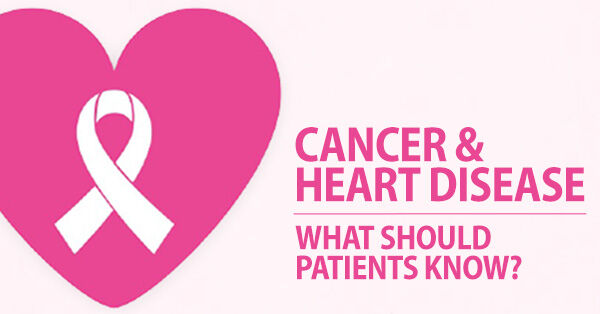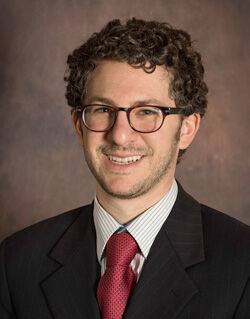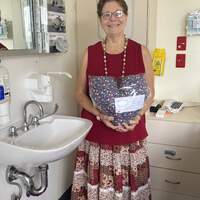Cancer & Heart Disease: What Should Patients Know?
Written By: Adam Pick, Patient Advocate & Author
Medical Expert: Joshua Levenson, MD, Cardiologist, UPMC
Published: March 10, 2022
While common cancer treatments such as chemotherapy, radiation, and other anti-cancer drugs are effective in treating cancer, these medications may have negative long-term effects on your heart and your heart valves. Patients who receive one or more of these cancer treatments are often diagnosed with arrythmia, high blood pressure, valvular disorders, or heart failure following treatment.

Joshua Levenson, MD, is a cardiologist at the UPMC Heart and Vascular Institute and is certified in internal medicine and cardiology by the American Board of Internal Medicine. We sat down with him to discuss the details of cancer treatment and heart health.
 Joshua Levenson, MD, Cardiologist (UPMC)
Joshua Levenson, MD, Cardiologist (UPMC)
Do all cancer treatments affect your heart?
No. Not every cancer treatment will result in heart complications. Prior to the start of treatment, your doctor will examine your heart health and if necessary, help you take preventative steps to reduce potential heart damage caused by the treatment.
Cancer treatment plans are unique to each patient, created specifically for them by their oncologist, or cancer doctor. Your doctor will prescribe the necessary dosage and extent of time the medication will be administered to prevent the cancer from returning or spreading, while being mindful of the safety of your heart.
Can you prevent damage caused by cancer treatments?
Yes, taking preventative action prior to the start of your cancer treatment is an essential way to protect your heart and the function of your heart valves. There are risk factors, such as your age, family history, and gender, that may affect your risk for heart complications that cannot be changed. However, factors such as high blood pressure, high blood cholesterol, weight, and lack of physical activity are all risk factors that can be managed to help prevent heart damage.
These factors may affect the treatment plan your doctor creates. Your doctor will evaluate your heart and overall health prior to beginning treatment to understand your risks and prescribe the most effective, least harmful treatment for you. If necessary, your doctor may prescribe additional medications prior or during treatment that are designed to improve your heart health.
How do common cancer treatments affect heart health?
Preceding surgical intervention, treatments such as chemotherapy, immunotherapy, targeted therapy, and radiation are effective in shrinking tumors. Your oncologist may also prescribe these medications following surgery to prevent the cancer from spreading throughout your body. Although these medicines are effective, they can have a negative impact on your heart.
For patients diagnosed with breast or lung cancer, radiation is highly targeted and applied directly to the chest, which may increase your risk for heart damage. These risks may include cardiomyopathy, arrhythmias, coronary heart disease, and valvular disease.
The level of damage varies based on the type and dose of your treatment, the number of treatments you are receiving, and your health and risk factors prior to undergoing treatment. Your oncologist will analyze your health and cancer type to select the most effective and least harmful dose for you.
How do cancer treatments impact heart valve function?
Patients who undergo cancer treatment are at an increased risk for valvular heart disease, especially when treatment is targeted to the chest. High-dose radiation, for example, can lead to heart valve damage including fibrotic aortic valve stenosis and valve calcification.
Often, the impact of high-dose radiation to the heart valves will develop anywhere from 5 to 20 years following treatment. We encourage patients to regularly check with their doctor to examine their heart health in the time after treatment.
What are the warning signs of heart damage?
When monitoring your heart and overall health, it’s important to be aware of the signs and symptoms of potential heart damage. These include:
- Dizziness.
- Trouble breathing (at night and on exertion).
- Fainting.
- Chronic cough.
If you experience any of these symptoms, whether during treatment or post-recovery, consult your doctor. They will examine your heart and identify the damage, as well as recommend treatment options to repair your heart.
Is there a link between cancer treatments and cardiovascular disease?
Yes. Cardiovascular disease (CVD) is a general term for conditions that affect the heart and blood vessels, including heart disease, valvular disorders, hypertension, atherosclerosis, and cerebrovascular disease. Whether you are a patient undergoing cancer treatment, or a long-term cancer survivor, your risk of developing CVD and CVD related death is increased.
There are several factors for patients diagnosed with cancer that increase your risk of dying from cardiovascular disease, such as:
- Type of cancer. Patients with breast cancer, prostate cancer, and bladder cancer are at the highest risk of dying from CVD.
- Age. Cancer patients who receive diagnosis younger than age 35 are most likely to suffer from a cardiovascular disease-related death.
- Timing. Throughout the first year following diagnosis, patients are at the highest risk of dying from CVD.
How does the team at UPMC care for a patient with heart valve disease if they are diagnosed with cancer?
Our multi-disciplinary team of specialists at UPMC is here to provide comprehensive care to all patients diagnosed with cancer. The UPMC Center for Cardio-Oncology includes staff from the UPMC Heart and Vascular Institute and UPMC Hillman Cancer Center that work together to prevent or treat the negative cardiovascular effects from certain cancer treatments.
Our care team will examine your overall health and heart function to create a treatment plan personalized to you. We assess your health throughout treatment to monitor any damage or adverse effects from the treatment.
Click here to learn more about the UPMC Center for Cardio-Oncology and to contact our experts.
How can you care for your heart health during treatment?
Your doctor will closely monitor your heart and heart valves throughout treatment to ensure that it remains healthy and has not been significantly affected by the medicine. They will continually monitor your heart rate and blood pressure and even utilize imaging testing to see your heart function.
You can take additional measures during treatment to care for your heart and well-being. Eating healthy, staying active, and managing stress are essential in keeping a healthy heart.
If your heart health declines during treatment, your doctor may temporarily stop the treatment responsible for the damage. They may also prescribe medications to improve your heart function so that treatment can resume.
Following treatment, what can you do to care for your heart health?
When you are finished with treatment, it’s essential to maintain a healthy lifestyle and prioritize your heart health. These lifestyle changes, along with regular health exams with your doctor, are simple ways to care for your heart in the time following treatment:
- Eat a healthy, balanced diet.
- Limit alcohol intake.
- Quit smoking.
- Exercise regularly.
- Monitor and control your blood pressure and cholesterol.
Do you have any advice for patients diagnosed with heart valve disease and cancer?
We recommend prioritizing your heart health and controlling your risk factors as much as possible. Working with your doctor to make heart-healthy lifestyle changes will allow you to be in the best possible shape to undergo treatment.
Receiving regular examinations and echocardiography scans from your doctor will allow them to monitor any changes or the effects of treatment. Following your cancer treatment, it’s important to regularly check your heart health with your doctor to monitor further damage.
To learn more, visit UPMC.com/HVI.





